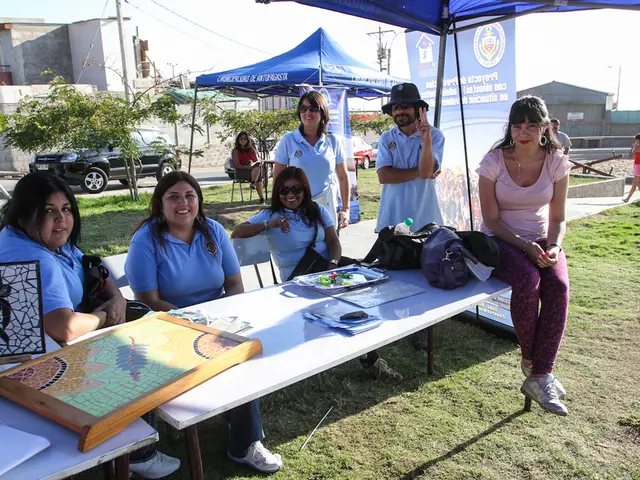Legislative proposal supported, aiming to reinstate full tax write-off for gambling-related losses
The FAIR BET Act (Fair Accounting for Income Realized from Betting Earnings Taxation Act) is a legislative proposal aiming to restore the full ability of gamblers to deduct 100% of their gambling losses on their taxes. This act seeks to undo the 10% limitation on gambling loss deductions introduced in President Trump’s One Big Beautiful Bill (OBBB, also known as OBBA).
Purpose
The FAIR BET Act aims to correct what supporters call an unfair tax burden on gamblers, ensuring that gamblers—whether recreational or professional—do not pay taxes on money they have lost rather than won. Legislators like Rep. Dina Titus (D-Nev.) and Rep. Ro Khanna (D-Calif.) introduced the FAIR BET Act shortly after OBBB's signing, believing the 90% cap penalizes gamblers and could harm the domestic gambling industry, including sports bettors and poker players.
Implications for Gamblers
Before OBBB, gamblers could deduct all losses dollar-for-dollar against their winnings, so net taxable gambling income reflected actual profit. The new 90% cap means gamblers could have to pay taxes even in years when their net result is a loss or break-even, increasing their effective tax burden and potentially reducing the financial viability of gambling as a profession or hobby.
Implications for the Gambling Industry
Industry figures and groups, such as casino owners and the American Gaming Association (AGA), initially supported Trump's broader tax bill but have shown support for restoring full loss deductions. They argue that the cap could hurt the gaming sector and drive bettors offshore. Casino magnate Derek Stevens publicly endorsed the FAIR BET and similar Full House Act bills as fixes to prevent unintended tax consequences that could "decimate" the gaming economy. The industry fears reduced competitiveness and legalization advantages if tax changes push bettors to alternative markets.
Legislative Status
The FAIR BET Act was introduced quickly after the OBBB was signed in mid-2025 and has bipartisan support in some cases. A similar Senate bill, the Full House Act, aimed to do the same but faced blockages, particularly a failed unanimous consent caused by Republican Sen. Todd Young, stalling repeal efforts. As of late July 2025, repeal efforts are ongoing, but the tax limitation remains in effect.
In essence, the FAIR BET Act seeks to undo the 10% limitation on gambling loss deductions in Trump’s "Big Beautiful Bill" and prevent unfair tax liabilities on gamblers, protecting the U.S. gambling industry's domestic market from negative fiscal impacts and potential customer losses to offshore providers. The FAIR BET Act has received approval and backing from the American Gaming Association, the largest gaming trade group in the United States. Rep. Dina Titus, a Democrat from Nevada and co-chair of the Congressional Gaming Caucus, has filed the FAIR BET Act to counteract the Big Beautiful Bill.
- The FAIR BET Act, a proposal aiming to restore full gambling loss deductions for taxpayers, has significant implications for sports bettors, poker players, and the broader casino-and-gambling industry.
- The FAIR BET Act, introduced by legislators such as Rep. Dina Titus and Rep. Ro Khanna, seeks to address what supporters deem an unfair tax burden on gamblers, potentially reducing the financial impact of taxes on betting losses.
- The American Gaming Association, the largest gaming trade group in the United States, has voiced support for the FAIR BET Act, arguing that the policy-and-legislation change could protect the domestic gambling industry from negative fiscal impacts and potential customer losses to offshore providers.




